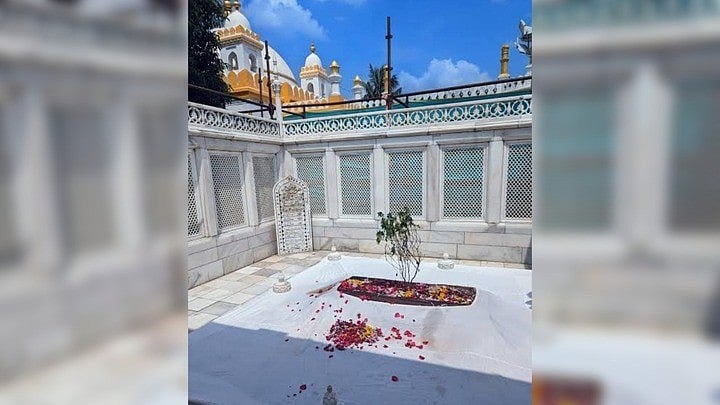
Tomb of Mughal emperor Aurangzeb.
Credit: Special Arrangement
The violence in Nagpur which followed a right-wing group’s protest march demanding the removal of the tomb of Mughal ruler Aurangzeb – from Chhatrapati Sambhajinagar (formerly Aurangabad) – is the fallout of regressive political narratives that hold no relevance to these times.
During the demonstration, an image of the Mughal ruler wrapped in green cloth was burnt, giving rise to rumours that led to mob violence. The police and the district administration seemed to have been ill-prepared for the situation. There was intelligence failure as well.
The police came under attack and the violence continued for some time, leaving the trouble-hit areas under curfew. Maharashtra Chief Minister Devendra Fadnavis and Union Minister Nitin Gadkari, who represents Nagpur in the Lok Sabha, have appealed to the people to maintain peace and not to believe in rumours.
Fadnavis has alleged conspiracy behind the violence. Whether it was the result of a conspiracy, rumours or a failure on the part of the police, the violence points to untoward consequences of pursuing an irrational idea of revenge against a historical figure who lived four centuries ago. Aurangzeb may have been a controversial, polarising ruler but he is part of history which cannot be erased.
The entire debate and the ongoing campaign against the Mughal ruler follow the release of the film Chhaava, based on the life of Maratha ruler Chhatrapati Sambhaji Maharaj, who was killed by Aurangzeb’s army. It had its echoes in the State Assembly and is now playing out in the political arena.
Aurangzeb’s grave in Khuldabad is now sought to be made a symbol of bigotry, intolerance and aggression against Hindus. It is a part of history and destroying or shifting it will not change history. Even Devendra Fadnavis has supported the demand.
The tomb is a protected monument under the Archaeological Survey of India (ASI) and both the central and state governments are duty-bound to protect it. However controversial, Aurangzeb was a significant historical figure who is portrayed differently in different versions of history.
History and historical figures should not be judged in terms of the ideas and ideologies of the present times. Politics over the grave of a person who died long ago is unwarranted and can lead to aggression such as the violence in Nagpur. The Mahayuti government came to power last year promising good governance and development. The issues that are in play in the state do not promote those goals but can only go against them.
